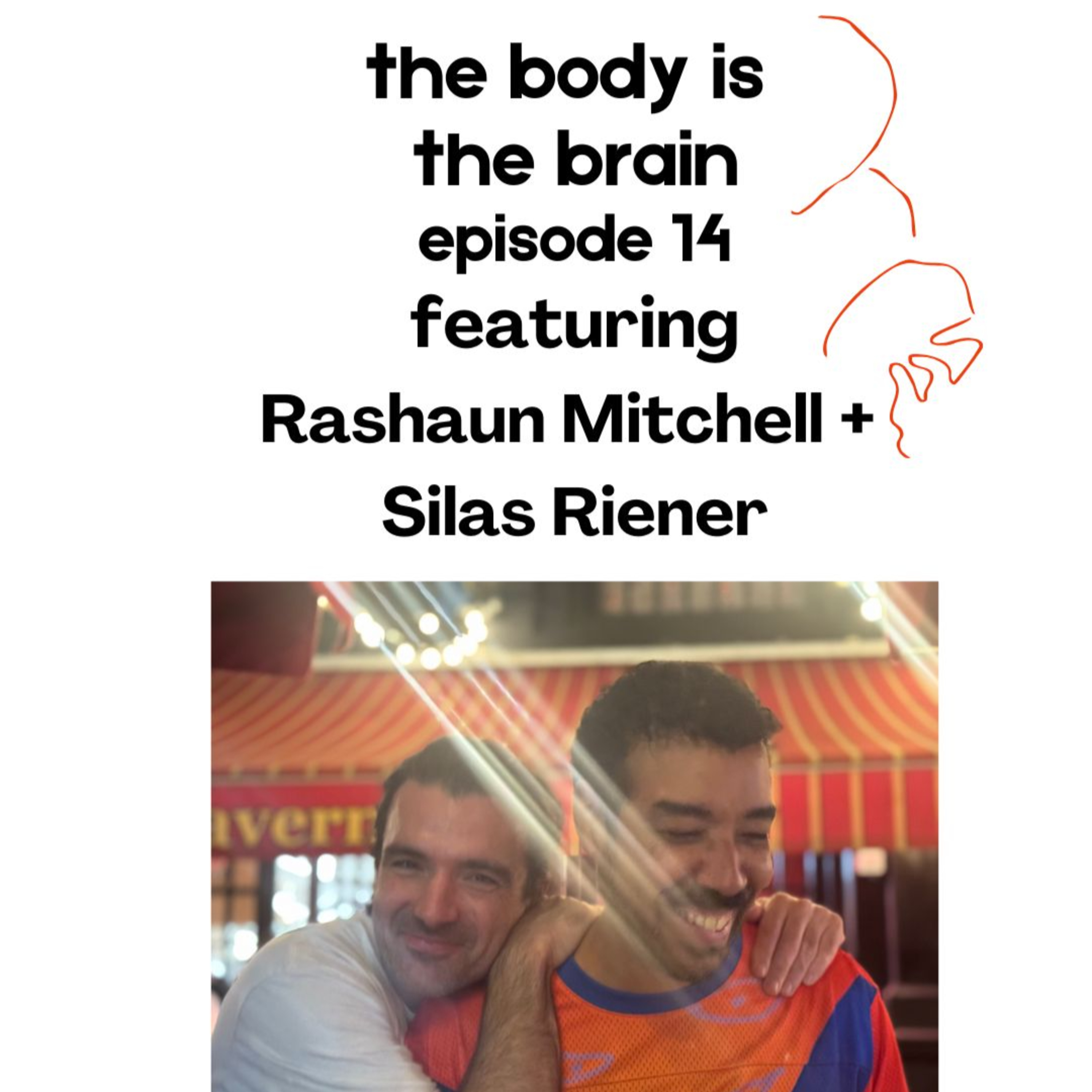the body is the brain

the body is the brain
Podcast Description
the body is the brain is a podcast about art and social justice hosted by artist and attorney Hope Mohr. Through conversations with artists and cultural workers, we explore the practice, production, and politics of contemporary artmaking.
Podcast Insights
Content Themes
The podcast focuses on the intersections of art and social justice, with specific topics including embodied practices in directing, the politics of casting, and the role of performance in community building. Episodes feature discussions around notable works such as The Magnolia Ballet and collaborative performances like Beyond, emphasizing themes like liberation, queerness, and cultural safety.

the body is the brain is a podcast about art and social justice hosted by artist and attorney Hope Mohr. Through conversations with artists and cultural workers, we explore the practice, production, and politics of contemporary artmaking.
We talk about: attention as a material, the politics of audio description, queer abstraction, tuning ensemble in improvisation, avoiding saying ”no” when directing, translating site-specific improvisation to a proscenium context, the difference between impulse and desire, refusal as a practice, making experimental dance with AI, and much more…
ABOUT THE ARTISTS
Rashaun Mitchell + Silas Riener's work involves the building of collaborative worlds through improvisational techniques, digital technologies, and material construction. They met as dancers in the Merce Cunningham Dance company and since 2010 they have created over 25 multidisciplinary dance works including site-responsive installations, concert dances, gallery performances and dances for film in venues such as the Brooklyn Academy of Music, Barbican Centre, REDCAT, The Walker Art Center, and MoMA/PS1. Throughout they have maintained a commitment to queer culture and aesthetics. Their partnership intentionally blurs authorship and maintains a deep commitment to collaboration with a diverse community of dancers, performers, artists and cultural institutions.
https://www.rashaunsilasdance.com/
@rashaun.silas
SHOW NOTES
Rashaun Mitchell, Silas Riener, and Claudia LaRocco, Already & Not Yet: Rashaun Mitchell and Silas Riener in Conversation with Claudia La Rocco, SFMOMA's Open Space, Nov. 7, 2019
Megan Metcalf, Future Formers, Former Futures, SFMOMA's Open Space, February 13, 2018
Ted Chiang, Why AI isn't going to Make Art, The New Yorker
Danielle Goldman, I Want to be Ready: Improvised Dance as a Freedom
Hope Mohr, Self and System, SFMOMA's Open Space, Oct. 24, 2019
Signals from the West: Bay Area Artists in Conversation with Merce Cunningham at 100
///
Are you an artist or arts organization in need of legal support or capacity-building? Reach out to Movement Law, dedicated to building power with artists and mission-driven organizations. https://www.movementlaw.net/

Disclaimer
This podcast’s information is provided for general reference and was obtained from publicly accessible sources. The Podcast Collaborative neither produces nor verifies the content, accuracy, or suitability of this podcast. Views and opinions belong solely to the podcast creators and guests.
For a complete disclaimer, please see our Full Disclaimer on the archive page. The Podcast Collaborative bears no responsibility for the podcast’s themes, language, or overall content. Listener discretion is advised. Read our Terms of Use and Privacy Policy for more details.